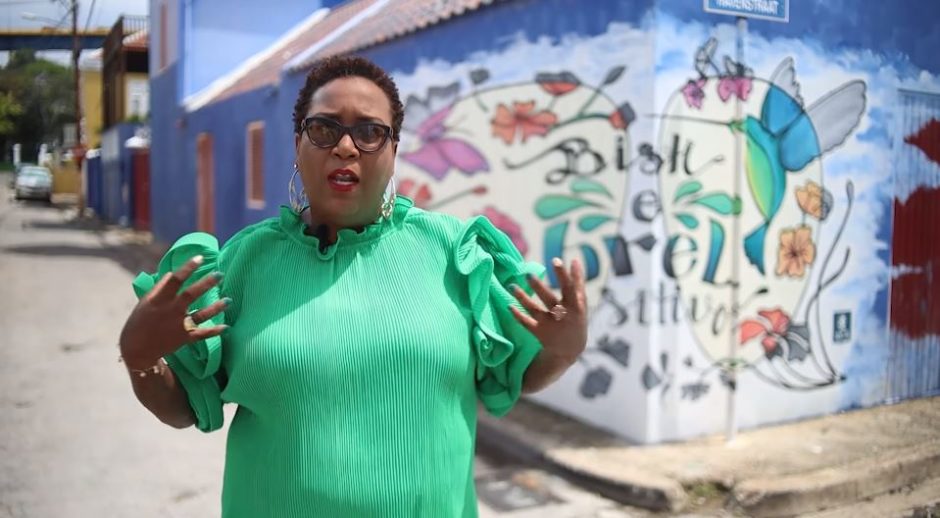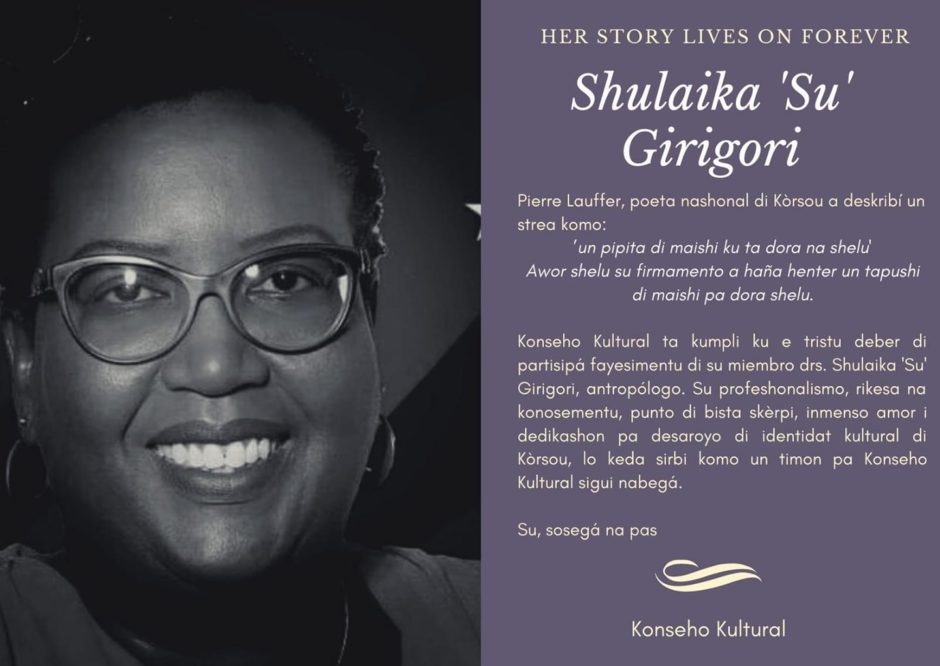Remembering the anthropologist Su Girigori (1975-2021)
by Rose Mary Allen
On March 27, 2021, I received the sad news that my dear anthropology colleague and friend Shulaika ‘Su’ Girigori had joined the ancestors.

The first time that I met Su was when she applied for a position as anthropologist at NAAM (National Archaeological Anthropological Memory Management Foundation), where I was a member of the Board at the time. What struck me was her strong confidence and the energy with which she presented what she stood for and believed in.
Her thesis, Beat the Drum and Break the Silence: Constructing a Collective Ethnic Identity for Curaçao through the Tambú (2009), was not only a description of the tambú as a musical instrument, an event, and a music genre that had for a long time been repressed by government and the Roman Catholic Church. It also encompassed an analysis of tambú’s current position in the Curaçaoan society, explained tambú as a medium through which Curaçaoan citizens define themselves as a collective culture and a society, and presented practical recommendations. This is exactly how I came to know Su as a scholar: someone who does not simply describe cultural expressions and events (which may lead to their folklorization), but who also seeks to understand their development and who considers how they could be vitalized in a modern-day context. Su, the scholar, was someone who constantly attempted to ground local cultural practices in a dynamic theoretical understanding and who saw the importance of sharing her ideas on both local and international platforms.
I had the honor to accompany Su at various conferences in the Caribbean region and was able to take note of her detailed and careful analysis of Curaçaoan culture. At a conference of the Caribbean Studies Association in Guadeloupe (2012), she discussed the music genres used by the younger generations in a presentation called ‘Un Humilde Piedra: Rediscovering the Power of Lyrics in Curacao’s Popular Rhythms’. At a conference in Suriname themed Legacy of Slavery and Indentured Labour: Past, Present and Future (2013), she spoke about emancipation as a continuous process of becoming conscious of one’s own history, in which responsibility should be taken for (re)writing that history. Over the years, she presented various papers combining her daily practical work with scholarly production; see for example her article titled ‘Pasado, Presente i Futuro: Curaçao’s Cultural Expression Revised’ published in Multiplex Cultures and Citizenships, Multiple Perspectives on Language, Literature, Education, and Society in the ABC-Islands and Beyond (2012). Her recent contribution to the book titled Kas di Pueblo – House with a Mission (2019) contains an excellent analysis of the socio-cultural activities that took place in Kas di pueblo, a historical building in Penstraat known for its emancipatory function as put into effect especially by Dr. (Dòktor) M.F. Da Costa Gomez.
Su Girigori stood out for her seriousness and dedication to scholarship, which was also reflected in her involvement in delivering the modules Methodology of Researching Culture and Intangible Cultural Heritage within the Culture programs offered by the University of Curaçao.
Su, your commitment to Curaçao’s cultural scholarship will be remembered and your body of work will certainly continue to be recognized, utilized and built upon.

